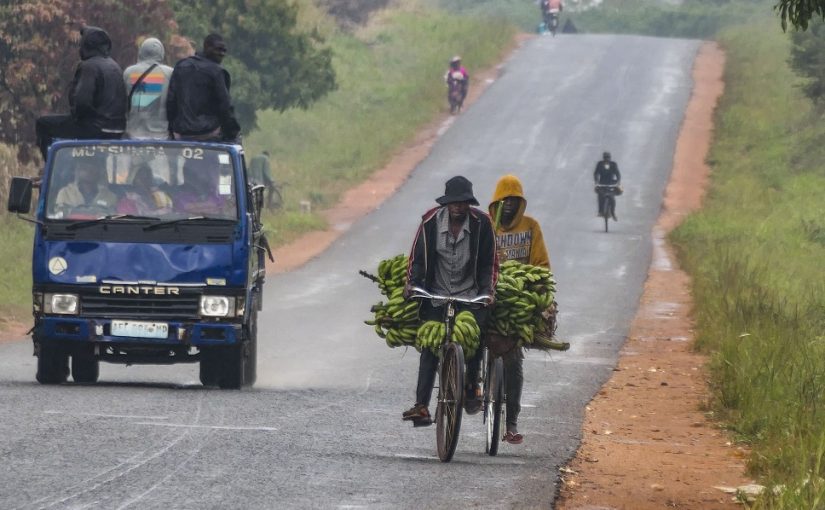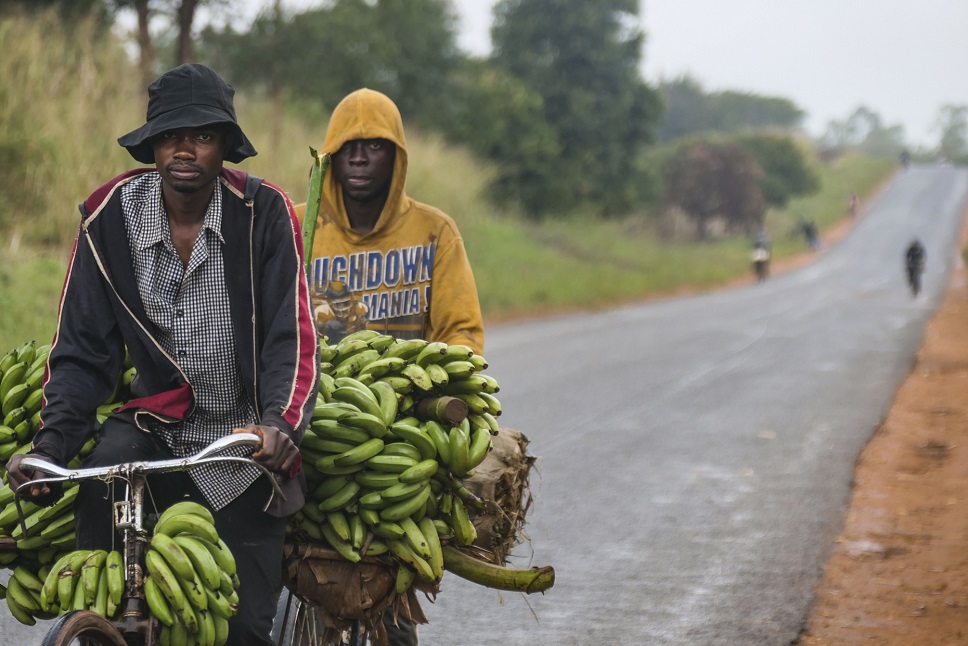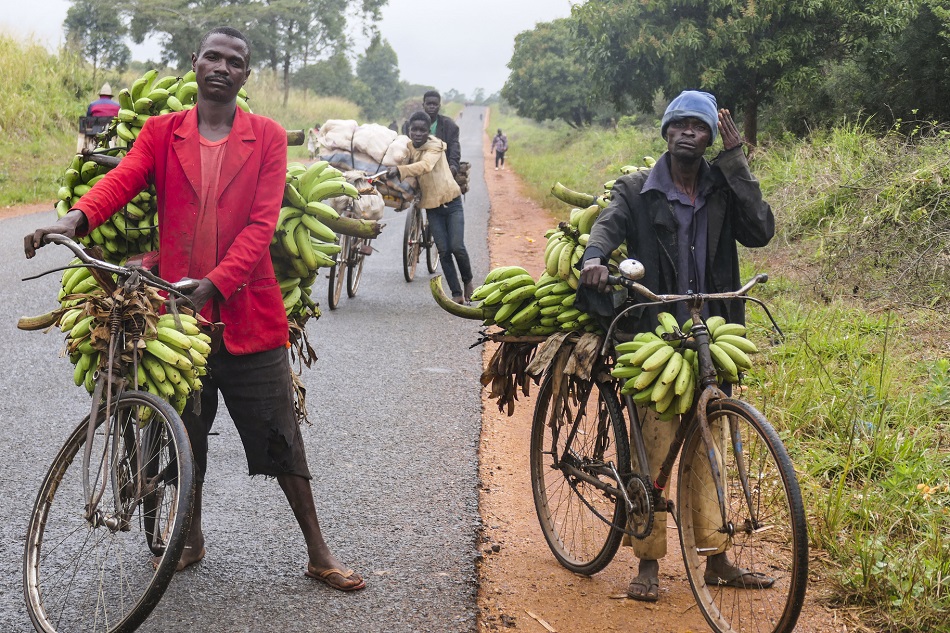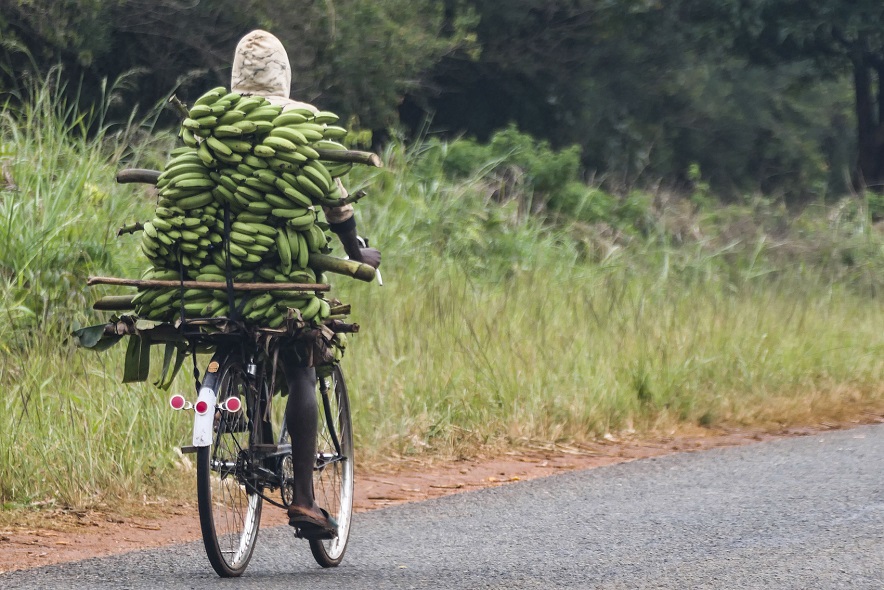Mozambique: Savings deposits hit record high in 2024, up 12.5% – central bank
Inflation drives Mozambique’s banana sellers onto two wheels – Photos

Photos: Andre Catueira / Lusa
Adelino Vasco had to trade public transport for a bicycle in order to stay in the business of selling green bananas in central Mozambique.
Inflation has forced the 43-year-old Mozambican to pedal a round trip of around 90 kilometre every day with four bunches of bananas on his bicycle in order to stay in the black because, he says, rising transport fares were swallowing up all his income.
“Fuel went up and so did transport fares, so I started to see the advantage of transporting the by bicycle,” if he was to continue supporting his family, Adelino Vasco told Lusa, as he struggled to balance the loaded bicycle.
“Before, I used the ‘My Loves’,” he says, referring to the open-top vans used to transport goods and people, where users have to hug each other to stay aboard (hence the term ‘my love’).
Rising fuel prices have forced up the price of transporting a bunch of bananas from Chicanga, in the interior of Macate, to Chimoio, the capital of Manica, from 20 to 40 meticais (€0.30 to 0.60) since March.
It doesn’t seem much, but it’s enough to unbalance the budget at Adelino’s household.
In several Mozambican cities, the transport tariff has been readjusted, in some cases even more than once, since the beginning of the year.
Adelino used to buy the bananas at an average price of 80 meticais (€1.22) per bunch and can sell three bunches for 450 meticais (€6.84).
After expenses, Adelino makes 150 meticais.
A good fraction of that profit was absorbed by the increase in transport, with Adelino now earning only 90 meticais (€1.37 euros) for the same batch of three bunches of bananas.
And he still needs to pay fees at the market where he sells.
“It’s essential to use my bicycle, because if I use public transport, it’s too expensive and I don’t make anything,” Adelino says.
And he’s not the only one.
Hundreds of peasants and small traders in the districts of Gondola, Macate and Sussundenga, in the central province of Manica, now use bicycles to transport agricultural products for sale, especially green bananas and tangerines.
It is a way of escaping the high price of transport fares.
With a fluttering blue blazer and pants torn at the knee, Elias Caerera, a peasant from Chicanga, takes advantage of a downhill stretch to “gain time” on the bumpy road he cycles every time he takes green bananas to Chimoio market.
Unlike Adelino, Elias Caerera harvests bananas from his own machamba [vegetable garden] and sells them to meet the needs of his extended family.
Pedalling preserves his profit margin, essential to purchase other products whose price is also “skyrocketing”.
“This way, I earn a little more,” Elias tells Lusa, adding that the rise in transport prices has put back plans to cover his precarious house with zinc sheets.
“The price of ‘chapas’ has also gone up a lot and it’s no longer possible to use public transport to carry the bananas. So it’s better to use my bike,” and save for other needs, he adds.
The bicycles used to transport green bananas are mostly of Indian manufacture and of dubious quality.
Many cyclists improvise brakes and pedals with rubber from used tires, due to the poor quality of the original parts.
Pushing a bicycle deformed by the weight of its load, another banana seller, Dias Farnela, says he has always saved by transporting cargo from Boavista (Macate) by bicycle to sell at the Chimoio market. This is his only business, and supports his nine-strong family.
“With the bicycle, it’s an advantage because I save the 40 meticais for each bunch that I have to pay from Chicanga to the market,” he tells Lusa.
On the busy road between the city of Chimoio and the district of Macate, the number of bicycles, most of them overloaded, far exceeds the number of “My Loves”, which still compete for the transport of green bananas.
ALSO READ: Mozambique: Cassava, sweet potato and yam replace bread as prices rise
Annual inflation in Mozambique rose to 9.31% in May, the highest value in the last four years and seven months, influenced by global price pressures, namely the war in Ukraine.
By André Catueira















Leave a Reply
Be the First to Comment!
You must be logged in to post a comment.
You must be logged in to post a comment.